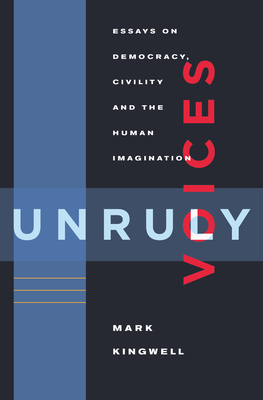Second, though, we actually need graduates more than ever precisely because democracy depends on a population of engaged, critical thinkers who have general humane knowledge of history, politics, culture, economics, and science, citizens and not consumers who see that there exist shared interests beyond their own desires. Once the link between higher education and work has been broken, the value of the humanities and the non-applied sciences become clear. Education is not there to be converted into market value, it it there to make us better and more engaged citizens, maybe even better and more virtuous people. - Mark Kingwell, Unruly Voices (2012) p.136.
 Dr. Kingwell is a professor of philosophy at the University of Toronto and a prolific author of books and articles (including Harper's). Reading these words this morning on the heels of an email exchange last week regarding the dominant culture of monetizing everything as if all we value can be translated to financial gain, really resonated this morning.
Dr. Kingwell is a professor of philosophy at the University of Toronto and a prolific author of books and articles (including Harper's). Reading these words this morning on the heels of an email exchange last week regarding the dominant culture of monetizing everything as if all we value can be translated to financial gain, really resonated this morning.The industrialization of education, agriculture, politics, and even our social fabric makes it difficult, if nigh impossible to address needed changes to respond to growing global challenges. I was pushing through British philosopher, David Miller's recent book on National Responsibility and Global Justice earlier this morning where he finely articulates his argument for
Our obsession with economic growth, as opposed, to say of fair distribution of resources and opportunities is so dominant that challenges to it, even in supposedly citadels of learning and critical thinking, are few and far between. No doubt some of that is fear to challenge power.

No comments:
Post a Comment